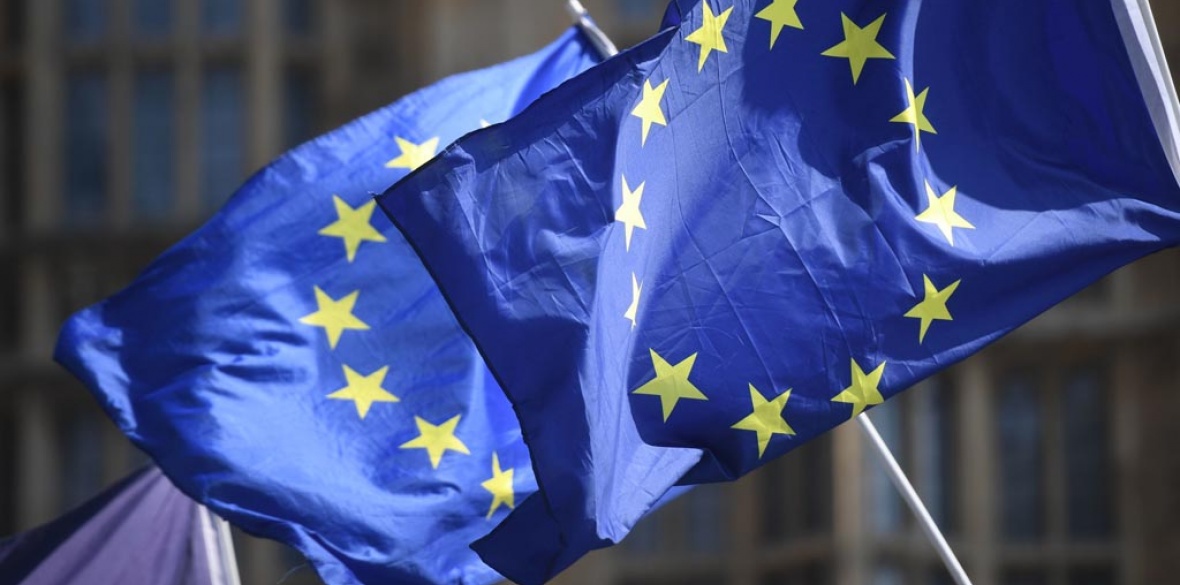This is the last article you can read this month
You can read more article this month
You can read more articles this month
Sorry your limit is up for this month
Reset on:
Please help support the Morning Star by subscribing here
JOHN McDONNELL said on Sunday that Labour had to “get on with” changing its Brexit policy to one of backing a second referendum. This had to be done “sooner rather than later,” he told the BBC. The drift of the Labour Party towards an official position that supports a second referendum is bad news for democracy. It may also prove to be an electoral disaster for the Labour Party. It will certainly make Tony Blair’s political divorce of the party from Labour’s working-class traditions irreversible.
The second referendum will be a disaster for democracy because it is plainly an effort to reverse the result of the first without having implemented it. The Remainiacs’ tortured efforts to rebrand the second vote betray its essential illegitimacy. “Second referendum” obviously means “try again.” So its supporters renamed it “People’s Vote.” But the people kept telling them that we had already voted. So it became a “confirmatory vote,” in which Brexit won’t be on offer at all: only May’s “Brexit-in-name-only” Withdrawal Agreement or Remain. A second referendum would be a mockery of democracy on these grounds alone, but it’s worse than that.
More than 85 per cent of MPs in this Parliament were elected on manifestos promising to implement the 2016 referendum. This was not some minor policy issue. It was a promise to implement a major constitutional change that the majority of the electorate voted for in a referendum Parliament itself enacted.
If MPs renege on that promise without calling an election, they will be repudiating their claim to represent us, and defying democracy. Many Remain MPs are angling to achieve such an outcome. They hope to bring down a Johnson government and replace it with a cross-party government of Remainers. A second referendum called by this new order would represent a dangerously authoritarian turn in British politics, one led by Labour MPs.
This looming disaster for democracy might be mitigated if there is a general election after Boris Johnson becomes PM. The chances of this are quite high, but far from certain. Should there be a quick election, Labour might follow the Lib Dems and go to the electorate calling for a second referendum. Labour would be saying, in effect, that they got it wrong at the last election: they thought they could implement the referendum decision but it turned out they could not. If a new Parliament was elected with a majority of MPs supporting a second referendum then, although it would be a victory for the Remain elite, at least the electorate would have voted for it. How likely is this?
It is difficult to say precisely what the electoral consequences of backing another referendum would be. The latest polls show Labour receiving a massively reduced vote compared with 2017. A pivot to the second referendum may win back some Remain voters lost recently to the resurgent Lib Dems, but it is unlikely to be anywhere near enough for Labour to make much progress in Parliament.
As Richard Johnson’s careful analysis has shown, to make significant gains in Parliament, Labour needs to take Conservative-held Leave-voting seats. At the same time, sitting Labour MPs tend not to be vulnerable in Remain-voting seats, but are highly vulnerable in Leave-voting seats. With little sign of Bregret among Leave voters, recent polls suggest that it is very unlikely that Labour will be able to form a majority government with a pro-second referendum position. Even if Labour could form a coalition government, it will be very difficult to see Corbyn’s programme through against determined opposition from the other parties.
In any case, whatever the likely electoral outcomes, the crucial point is that supporting a second referendum is the wrong position. As many in the Labour leadership know their programme cannot be implemented within the EU. Moreover working-class and poorer voters were much more likely than middle-class voters to vote for Brexit, and for good reason. They voted against a political system that had ignored their interests for far too long. For Labour to go over officially to the side of elite resistance to Brexit will send a clear message that the demands of working-class voters are less important than those of the middle class or of big business.
McDonnell chose to push publicly for a more militantly pro-EU stance on Sunday, the very same day that Greece’s Syriza government got turfed out of office by the Greek electorate. Syriza too abandoned its early radical promises and spent years doing the EU’s dirty work instead. For Corbyn’s Labour Party, backing the second referendum opens the road to Syrizafication.
Peter Ramsay is a Professor of Law at the London School of Economics. He supports The Full Brexit network.










